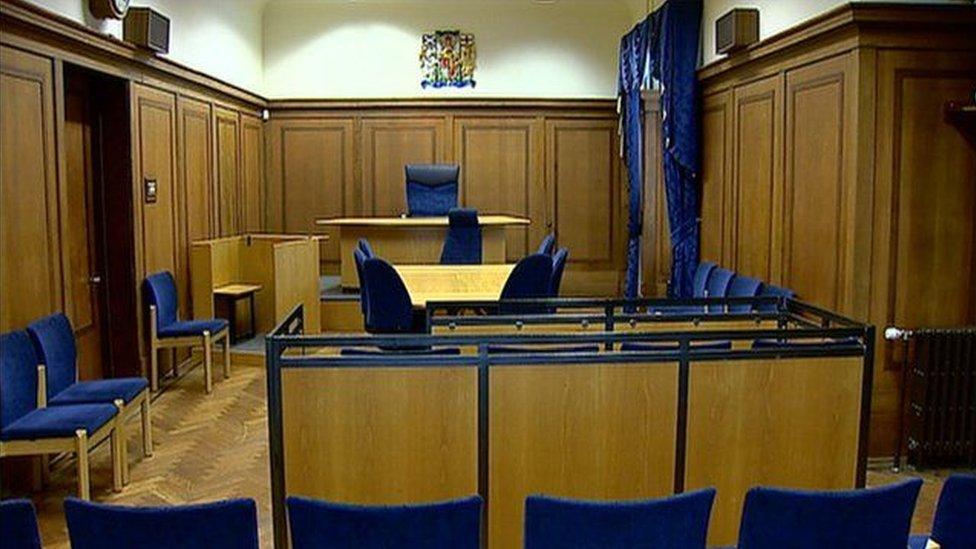Scotland's not proven verdict 'on borrowed time', say MSPs
- Published

Scotland's not proven verdict is on "borrowed time" and may not serve any useful purpose, Holyrood's justice committee has concluded.
The committee has been examining the Criminal Verdicts Bill, external, which would scrap not proven and increase the majority needed for jury trial convictions from eight to ten.
Most committee members backed the removal of the not proven verdict.
But they did not support increasing the jury trial conviction requirement.
The committee concluded this should be considered alongside other reforms recommended by former High Court judge Lord Bonomy.
Lord Bonomy led an expert group considering what safeguards would need to be put in place if plans to abolish the corroboration requirement in Scotland's criminal justice system went ahead.
The committee said it could not therefore back the general principles of the members' bill, which was introduced by Labour MSP Michael McMahon.

What is the not proven verdict?
Scotland, unlike most of the world's legal systems, has three possible verdicts in criminal cases - guilty, not guilty and not proven
The legal implications of a not proven verdict are the same as with a not guilty verdict: the accused is acquitted and is innocent in the eyes of the law
Not proven is seen by some as offering additional protection to the accused
But critics argue that it is confusing for juries and the public, can stigmatise an accused person and fail to provide closure for victims
Scottish juries were historically able to return only proven or not proven verdicts
A third verdict of not guilty was introduced in the 1700s and became more commonly used than not proven
However, the option of returning a verdict of not proven was never removed
In more recent years, the general perception has been that a "not proven" verdict suggests a sheriff or jury believes the accused is guilty, but does not have sufficient evidence to convict
In 2013-14, the not proven verdict was used in 35% of acquittals following trials for rape or attempted rape
This compares with a figure of 17% in the case of acquittals following trial generally (including trials without juries)
Overall, only 1% of all criminal court outcomes during each of the five years 2008-09 to 2012-13 involved the case against the accused being found not proven

The justice committee heard evidence that there was no legal difference between a not guilty and not proven verdict.
But it was told that not proven could carry a stigma for an accused person as well as fail to provide the necessary closure for victims.
The committee also concluded that the verdict is not always well understood and can cause confusion for both jurors and the public.
Its report said: "We note views that this confusion can lead to the effective defamation of the accused where the public believes the not proven verdict implies a degree of culpability; that the accused, in colloquial terms, "got away with it".
"The committee acknowledges that a not proven verdict may have social and indeed employment consequences that a not guilty verdict does not."
Committee convener Christine Grahame said the bill had "shone a light on the ambiguities of the not proven verdict and raised serious questions as to whether the verdict serves any useful purpose."
'Deeply unsatisfactory'
She added: "Not proven is often deeply unsatisfactory for victims and no better for those acquitted on it.
"Like most members of the committee, I believe the not proven verdict is on borrowed time.
"But changes to majority verdict requirement raise complex questions that should be considered alongside other reforms, currently under consideration by Lord Bonomy."
Supporters of the three verdict system, including several members of the justiciary, have argued that not proven could safeguard against wrongful conviction in cases where jurors are not satisfied beyond reasonable doubt that the accused is guilty but may wish to put down a marker that they are uncomfortable with declaring the accused innocent.
But Victim Support Scotland told that the committee that they believed it to be "unsettling that juries neither seem to understand the not proven verdict, nor use it in the way in which they should."